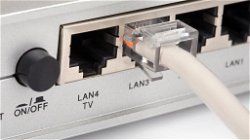Why Technical Search Engine Optimization is so important for Your Company?
Aaron Alston
. 2 min read
Optimizing a website for search engines, also known as search engine optimization (SEO), remains an indispensable component of any digital marketing strategy, including programming. SEO is a trustworthy mainstay that will continue to be so for the foreseeable future, despite the ever-evolving nature of digital marketing. The vast majority of digital marketers spend their time focusing on a variety of activities, including programming, while developing an all-encompassing SEO strategy.

Technical Search Engine Optimization
The most important question for any online business is whether or not people can find their website using search engines. Your website could have the most helpful information available on the internet, but if search engines are unable to crawl and index it, all of your hard work will be for naught. When it comes to a website's search engine optimization (SEO), the old adage "don't judge a book by its cover" could not be more appropriate.
Why should you Optimize the Technical Aspects of your Website?
The goal of Google and other search engines is to provide users with the most relevant and useful information in response to the queries they enter. Therefore, the robots used by Google crawl the web and evaluate each page based on a variety of criteria. Some aspects, such as how quickly a page loads, are determined by how the user interacts with the website.
Concluding Considerations
There are a lot of website owners who are aware of the importance of on-page SEO and having a solid content marketing strategy, but they frequently ignore technical SEO because they perceive it to be "complicated." Technical SEO is necessary, however, because it enables search engines to more effectively crawl your website and place it higher in the results of relevant searches.
You Should Always Be Able to Identify Problems in a Matter of Seconds
Either refrain from using pop-ups and improve your search engine rankings by going without them, or use pop-ups and improve your lead generation at the expense of some of your good position in the search engine results pages (SERPs). The encouraging thing is that there is also a third choice available. To a certain extent, the use of pop-ups will not negatively impact your website's ranking in search engines.
Steps that you'll need to take are listed down below
Step 1: Determine which Google search engine you want to use in order to check the position. Google.com is the one that is selected automatically for you, but you can also choose other Google TLDs (top-level domains) based on the country that you are targeting.
Step 2: In the space labeled "Your keywords," enter the keywords for the positions whose availability you want to check. You are permitted to enter up to 20 keywords at a time into our online rank checker. However, make sure that you only enter a single keyword into each line.
Checklist for technical SEO
The optimization of a website's code is one of the most fundamental aspects of search engine optimization. You may have the most incredible piece of content for a popular topic in your niche, but if your site has unresolved technical SEO issues, it will be difficult for you to rank high in the search engine result pages for that content (SERPs).
A Few General Pointers Regarding Technical SEO
Increasing the loading speed of your website is an important technical SEO tip that you should implement. If your website takes a long time to load, it may receive a lower ranking in the search engine results page. There are a number of different things that can be done to increase the loading speed of your website, including optimizing images, minifying CSS and JavaScript, and utilizing a content delivery network (CDN).
More Stories from
Fortifying Digital Assets: Ensuring Robust IP Security in a Connected World
It highlights the value of safeguarding intellectual property from external and internal threats, emphasizing the preservation of innovation and competitive advantage.
Multipurpose Internet Mail Extension (MIME): Enabling Diverse Content in Email Communications
The Multipurpose Internet Mail Extension (MIME) is a pivotal protocol that transformed email communication by allowing the exchange of diverse content beyond plain text.
Decoding the DNS: Enabling Seamless Internet Connectivity
The Domain Name Service (DNS) is a vital system that translates user-friendly domain names into machine-readable IP addresses, enabling seamless internet connectivity.
LAN Event Generator: Powering the Next Generation of Local Area Network Gatherings
Discover the game-changing impact of the LAN Event Generator, a sophisticated software application designed to streamline the organization of LAN events.
Google Photos: Your Ultimate Digital Memory Keeper
Explore Google Photos: Your ultimate memory keeper with automatic backup, smart organization, and easy sharing features.









.png?width=40&aspect_ratio=1:1)


.png?width=40&aspect_ratio=1:1)